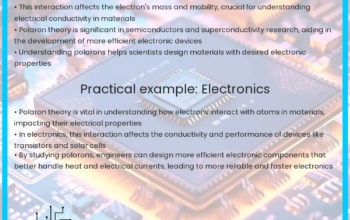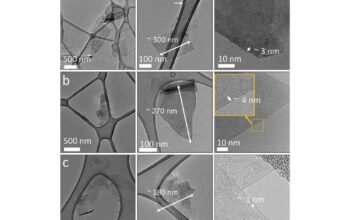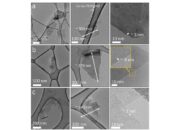Thermal engineering is a discipline that intertwines various principles of physics and engineering to address the complexities of heat transfer, thermodynamics, and energy systems. As global challenges intensify, particularly in relation to energy efficiency and environmental sustainability, the field of thermal engineering has evolved to present a plethora of exhilarating thesis topics. These subjects not only examine fundamental theories but also confront pressing societal issues. So, what could be an exciting thermal engineering thesis topic that pushes the boundaries of innovation?
1. **The Integration of Renewable Energy Systems in Heating Applications**:
Renewable energy technologies are indispensable in mitigating climate change. An analysis of how solar thermal systems can be effectively integrated into existing heating networks could be an intriguing thesis. This topic would involve evaluating the efficiency, cost-effectiveness, and adaptability of solar thermal collectors in various geographical locations. The playful question here could be, how much energy can we derive from the sun while maximizing both economic and environmental benefits?
2. **Heat Transfer Enhancement Techniques in Thermosyphon Systems**:
Thermosyphon systems offer a unique avenue to explore heat transfer mechanisms. Investigating unconventional methods of enhancing heat transfer, such as the application of nanofluids or modified surface geometries, could yield substantial advancements in efficiency. This topic invites researchers to engage with the challenge of optimizing these systems for a wide range of industrial applications. Can we create a system so efficient that it requires minimal energy input while maintaining maximum output?
3. **Smart Materials for Thermal Energy Storage**:
As the intermittent nature of renewable resources presents a challenge, smart materials that can store and release thermal energy could revolutionize energy management. A thesis could explore the development of phase change materials (PCMs) that enhance the capacity and efficiency of thermal energy storage systems. This research could address pertinent queries: How can the thermodynamic properties of these materials be tailored to meet specific energy demands?
4. **Thermal Management in Electric Vehicles**:
The proliferation of electric vehicles has brought thermal management to the forefront of engineering innovations. Investigating advanced cooling techniques for lithium-ion battery systems may yield significant breakthroughs in performance and longevity. The playful challenge could be framed as, what if a vehicle could operate optimally in the hottest deserts and coldest arctic conditions without compromising battery efficiency?
5. **Utilizing Waste Heat Recovery in Industrial Processes**:
Industries are significant contributors to energy consumption, yet a considerable amount of energy is dissipated as waste heat. A thesis could focus on innovative waste heat recovery systems, emphasizing their economic viability and environmental impact. This subject raises the thrilling question: how can we redefine industrial paradigms to capture and repurpose waste heat, transforming it from liability to asset?
6. **Investigation of Thermal Comfort in Smart Buildings**:
The burgeoning concept of smart buildings juxtaposes energy efficiency with occupant comfort. A thorough investigation could be conducted on the thermal comfort levels generated by automated systems that adapt to user preferences and external climatic conditions. The challenge lies in developing algorithms that can predict and adjust indoor temperatures dynamically. Can we achieve a balance between energy consumption and occupant satisfaction, leading to the ultimate smart living experience?
7. **Dynamic Simulation of Thermodynamic Cycles**:
Engaging in dynamic simulations of advanced thermodynamic cycles offers profound insights into the optimization of thermal systems. A thesis could focus on the performance assessment of cycles such as the Organic Rankine Cycle or Combined Cycle Gas Turbines under varying load conditions. This area contests researchers with the conundrum: what if we could predict with high accuracy the performance variations of these systems in real-time?
8. **Thermal Implications of Climate Change on Infrastructure**:
The impact of climate change on thermal performance in civil engineering is a vital area of investigation. Research could entail assessing how increasing temperatures influence building materials and heat transfer efficiencies. This topic ponders a vital question: how can we design resilient infrastructures that withstand the severe thermal discrepancies resulting from climate change?
9. **Micro and Nanoscale Heat Transfer**:
The intricate world of micro and nanoscale heat transfer offers a fertile ground for exploration. Investigating how heat conduction at microscopic levels differs from macroscopic principles may pave the way for revolutionary applications across various fields, including electronics and biomedical devices. Here, the intriguing challenge remains: can we harness the principles of quantum mechanics to enhance traditional thermodynamic models?
10. **Advancements in Cooling Technologies for Data Centers**:
The exponential growth of data centers necessitates innovative cooling strategies. A thesis could investigate the implementation of liquid cooling systems versus traditional air cooling methodologies, assessing the thermal performance and environmental impact of each. This exploration poses a playful challenge: can we dream up a data center that operates efficiently in a zero-energy paradigm?
In conclusion, the myriad of thermal engineering thesis topics not only encapsulates the core principles of thermal dynamics but also contributes substantively to addressing contemporary challenges. Engaging with these topics holds the promise of innovation and a reimagined approach to energy efficiency and sustainability. The quest for solutions in the realm of thermal engineering is not merely academic; it serves as a foundation for pioneering advancements that could reshape our future.












